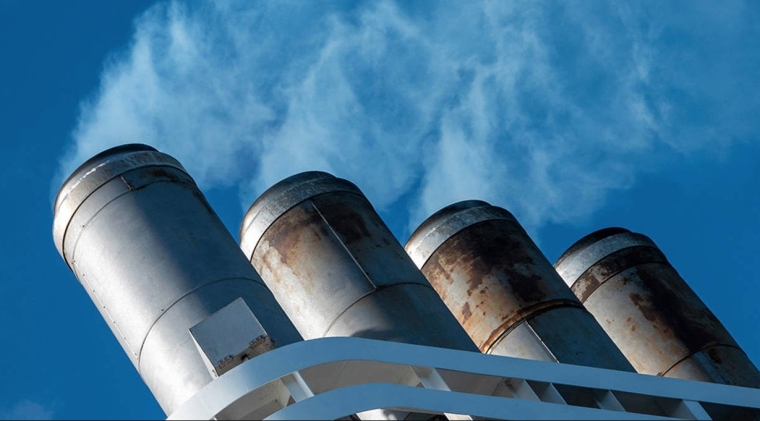
Many fear that America’s withdrawal from the Paris climate agreement will undermine the international consensus to reduce greenhouse-gas emissions. Yet just in the last month, there have been two major steps toward widespread carbon pricing where it is needed most.
To be sure, carbon pricing is not always the best policy, and not all sectors need to be subjected to schemes that require international consistency. If India electrifies its vehicle fleet more slowly than Europe, European industry suffers no competitive disadvantage. But the situation is different in long-distance shipping and aviation, and in heavy industries such as steel and chemicals, which account for around 25% of global emissions. Here, carbon pricing is key to cost-efficient decarbonisation, and must be imposed on an internationally consistent basis.
Fortunately, the technologies needed to achieve net-zero emissions by mid-century in each sector already exist. For example, methanol or ammonia can be used instead of fuel oil in ship engines, and hydrogen can replace coking coal in iron production. As matters stand, these technologies would impose a significant “green cost premium” at the intermediate product level, but with only a small impact on consumer prices. For example, even if shipping-freight rates doubled, the price of a pair of jeans made in Bangladesh and bought in London would rise less than 1%. If making zero-carbon steel costs 50% more per ton, that would add around 1% to the price of an automobile made from green steel.
Carbon pricing is essential to overcome the green cost premium, and it could drive cost-efficient decarbonisation at a trivial cost to consumers. But in each of these sectors, inherently international products (long-distance shipping) or the international trade in products (steel) make purely domestic approaches untenable. That is why the International Maritime Organisation (IMO) agreed on April 11 to impose a carbon levy reaching $380 per metric ton on ship operators whose emissions intensity exceeds a defined threshold.
The IMO agreement is not perfect. The organisation aims to cut global shipping emissions by 20% by 2030, but the new pricing scheme would achieve only an 8% reduction. Still, concluding a new multilateral agreement despite a US boycott of the negotiations is a big step forward. China, India, and Brazil were among the 63 countries in favor.
Carbon pricing could also drive decarbonisation in heavy industry, but if it is imposed in only some countries, production and emissions will simply move to others. Though the ideal solution would be common carbon prices worldwide for these energy-intensive sectors, there is no international rule-making body like the IMO. The second-best solution, then, is for individual countries to impose domestic carbon prices combined with border carbon tariffs.
The European Union is pursuing this approach. Not only will its emissions-trading scheme likely price carbon around US$140 per metric ton by 2030; it is also removing the free allowances that heavy industry previously enjoyed and introducing a border carbon adjustment mechanism (CBAM) to subject imports to the same carbon pricing as domestic production. In principle, this creates strong incentives for decarbonisation, while protecting domestic competitiveness.
But the CBAM has been too weak, and heavy-industry decarbonisation projects have been delayed. As a result, in March the European Commission committed to strengthening the regime in three respects: by ensuring a level playing field for exports as well as domestic sales; by widening the product coverage; and by improving the measurement of imports’ carbon intensity.
The crucial question now is how developing countries will respond. In the past, several governments – in particular China and India – have criticised CBAMs as protectionist. But their arguments are unconvincing. Combining a domestic carbon price with a CBAM does not give domestic producers a competitive advantage. It simply maintains the competitive balance that existed before both were introduced. Moreover, it is the only way that developed countries can truly decarbonise their heavy industry, rather than hypocritically claiming to reduce emissions that have merely moved to other countries. The objective of the policy is not to raise tariff revenue, but to encourage other countries to impose carbon prices at home.
These arguments are beginning to gain traction in developing countries. China’s own emissions-trading scheme has been extended to heavy-industry sectors, and prices are slowly increasing – though they still hover around US$10-15 per metric ton. If carbon prices in China, India, and other developing countries gradually rose to European levels, and if CBAMs were imposed on those outside this low-carbon club, Chinese and Indian companies would also decarbonise. Even better, the impact on local consumer prices would be trivial, and governments would generate revenue.
In this way, the EU’s approach could unleash a global wave of carbon pricing on heavy industry, matching the IMO’s progress in shipping. Ideally, policies would reflect internationally agreed standards for measuring the carbon intensity of production, and some of the revenues from CBAMs – and from the IMO’s carbon levies – would go toward supporting emissions reduction in lower-income countries. These ideas should be debated at COP30 in Brazil this November, regardless of whether an official US delegation attends.
Adair Turner, Chair of the Energy Transitions Commission, was chair of the UK Financial Services Authority from 2008 to 2012. He is the author of many books, including Between Debt and the Devil: Money, Credit, and Fixing Global Finance (Princeton University Press, 2016). Copyright: Project Syndicate, 2025, published here with permission.
7 Comments
A harsh opinion on Lord Adair Turner. "Lord Adair Turner was the head of the Financial Services Authority. As such he was provided with several accurate reports of the oncoming 2007-8 sub-prime mortgage bust and recession, which, of course, he ignored. His correct name, thus, is “The Watchdog Who Never Barked”. Perhaps he would have been a little more effective in the job he was richly paid to do and also as the Director of the Confederation of British Industry, if he hadn’t spent so much time promoting Globalist GangGreen agendas. He is a mendacious nitwit and it would be entirely appropriate for him to spend the rest of his miserable life in quiet contemplation. Preferably in a high security unit."
He's also had his snout in other UK govt troughs.
nigelh,
Harsh but accurate. I lived in Scotland for most of my life and in the financial world. Mind you, he was not alone in not not spotting the approaching tsunami-Meryn King's book, The End of Alchemy is good on this issue.
We must follow Germany and blow up Huntly PS, soon as its much older than the German one. The Moorburg coal-fired power plant with a capacity of almost 1.5 GW was the most modern and efficient in Germany and cost 3 billion euros. However, she worked for only six years. In 2018 Greta Tunberg arranged an action at the walls of the station. Do what Greta says and they did, a few years later.
Financial services, commenting on an energy problem.
Yes, he's on the wrong track, but not as wrong as the keep-on-growing brigade are.
It's an EROEI-vs-entropy problem. Which he clearly is ignorant of. And ain't the only one.
Eh?
The draft orders say the United States has fallen behind China in expanding nuclear power and call for a ‘wholesale revision’ of federal safety regulations to make it easier to build new plants. They envision the Department of Defense taking a prominent role in ordering reactors and installing them on military bases.
They would also set a goal of quadrupling the size of the nation’s fleet of nuclear power plants, from nearly 100 gigawatts of electric capacity today to 400 gigawatts by 2050. One gigawatt is enough to power nearly 1 million homes.
https://www.nytimes.com/2025/05/09/climate/trump-draft-nuclear-executiv…
I feel a little icky agreeing with Trump, but someone has given him decent advice here. A big expansion of nuclear power is by far the least bad option for maintaining society or even improving living standards without getting into some potentially nasty climate feedback loops.
Would have been even better a few decades ago.
How to decarbonise history lesson.

We welcome your comments below. If you are not already registered, please register to comment
Remember we welcome robust, respectful and insightful debate. We don't welcome abusive or defamatory comments and will de-register those repeatedly making such comments. Our current comment policy is here.